Reverse Osmosis (RO) systems are the main solution for clean water treatment in various industries, but are susceptible to scaling or crust on the membrane, which reduces performance and increases costs. The use of antiscalant is an important step to prevent crust, extend membrane life, and maintain filtration efficiency.
What is Antiscalant?
Antiscalant is a chemical added to raw water before entering the RO unit to prevent the deposition of minerals such as calcium carbonate, calcium sulfate, barium sulfate, strontium sulfate, and silica on the membrane surface. Without antiscalant, these minerals easily form solid deposits (scale) that clog membrane pores, increase working pressure, and reduce recovery rates.
In RO systems, the use of the right antiscalant is crucial. Raw water with high hardness and TDS content is at high risk of forming crust, and if not handled proactively, will cause decreased productivity to permanent damage to the membrane.
Types of Antiscalants and Their Applications
There are several types of antiscalants that are specially formulated for RO systems. The selection of the type of antiscalant must be adjusted to the analysis of the water composition and the design of the system used. Here are some of the main types:
1. Phosphonate-Based Antiscalant
This type is very effective in preventing scale formation from calcium carbonate and calcium sulfate. Phosphonate works by interfering with crystal growth and retaining mineral ions in solution.
Applications:
- Raw water with high hardness
- RO systems with high recovery (>75%)
- Water with significant calcium and alkalinity concentrations
2. Polycarboxylate-Based Antiscalant
This type of antiscalant has good dispersion properties, making it effective in handling multi-ion scaling. It also works well in preventing silica scaling and can be used in a wide range of pH conditions.
Applications:
- RO feed water with complex TDS
- Systems with varying water parameters
- Long-term use without frequent intervention
3. Polyphosphate-Based Antiscalant
Although more commonly used in non-RO applications, this type is sometimes used in RO pre-treatment or low-pressure RO systems. Polyphosphate works by binding metal ions and stabilizing minerals in solution.
Applications:
- Small-scale RO systems
- Pre-treatment systems
- Raw water with light scaling
Each type of antiscalant has a different formulation, and the selection of the type must be adjusted to the water quality analysis and the system used. That is why the role of technical consultants and laboratory testing is very important in determining the best solution.
Read Also: Scaling on RO Membranes: Causes and Prevention Methods
How Does Antiscalant Work in RO Systems?
The mechanism of action of antiscalants generally involves three main processes:
1. Threshold Inhibition
Antiscalant prevents mineral ions in water from crystallizing even when their concentration exceeds the solubility limit. This keeps minerals dissolved in water even in saturated conditions.
2. Crystal Modification
If crystals do form, antiscalant will disrupt the crystal growth structure. As a result, the crystals become deformed, unstable, and easily broken or carried away by the water flow before sticking to the surface.
3. Dispersion
Antiscalant also keeps small particles dispersed in the water and does not stick together to form a larger mass. This is very important to keep the system surface clean from deposits.
With these three mechanisms, antiscalant allows the water treatment system to operate at high efficiency and reduces the frequency of cleaning or shutdown.
Read Also: Reverse Osmosis: Water Purification Technology for the Highest Quality Standards
Benefits of Using Antiscalant
The proper use of antiscalant provides various real benefits for the water treatment system, including:
- Increasing the life of the RO membrane: Scaling is the main cause of membrane damage. Antiscalant slows down the physical degradation of the membrane, so that membrane replacement can be postponed.
- Increasing the efficiency of the RO system: A clean membrane allows the water separation process to run optimally, without increasing pressure or decreasing recovery.
- Reducing operational costs: Cleaning costs (CIP), energy, and membrane replacement can be significantly reduced.
- Reducing downtime: A scaling-free RO system requires less intervention, minimizing downtime and operational disruption.
- Stability of RO water quality: With an optimal membrane, the quality of the water (permeate) becomes consistent and meets specifications.
Professional Support for Optimizing Antiscalant Use
As a company with more than four decades of experience in the water treatment industry, Lautan Air Indonesia provides comprehensive antiscalant solutions that are tailored to customer needs. Our antiscalant products are designed to work optimally in various raw water and system conditions, from reverse osmosis, boilers, to cooling towers.
We provide not only products, but also comprehensive services such as:
- Water quality analysis through accredited laboratories
- Recommendation of the most appropriate type of antiscalant according to system conditions
- Technical support and training on the use
- Monitoring system performance to ensure long-term effectiveness
- Supply chain and inventory management for the continuity of chemical supply
With a solution-based approach, Lautan Air Indonesia is committed to helping customers keep their water treatment systems efficient, reliable, and sustainable.
Need the right antiscalants solution for your system?
Trust Lautan Air Indonesia as your reliable partner in water treatment. Contact our team today for technical consultation and customized solutions that suit your needs.



